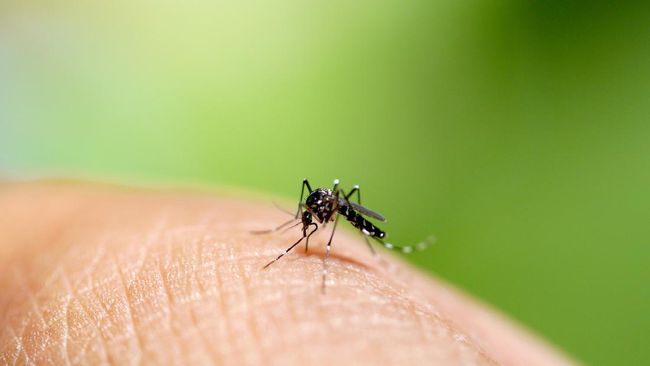
Jakarta, hitclubapk3 Indonesia
–
Almost everyone in the world is familiar with the presence of mosquitoes, but not so with residents
Iceland
.This country is claimed to be one of the places in the world that is free of insects.
As reported
Futura
On Monday (29/9), it does not mean that mosquitoes never try to enter Iceland.Professor of freshwater science from the University of Iceland, Gisli Mar Gislason, had found a mosquito on flights from Greenland to Reykjavik, the capital of Iceland.
He explained that mosquitoes were able to last for hours attached to the aircraft wheels, even in extreme cold temperatures.
Advertisement
Scroll to Continue with Content
The uniqueness of Icelandic mosquitoes lies in its natural conditions.The frozen cycle of water that occurs due to extreme temperature changes between autumn and spring is the main key.
Although Iceland has many ponds and wetlands around the airport that have the potential to be a mosquito breeding ground, mosquito larvae require stable liquid water to survive.
According to Biologist Robert Jones, mosquito eggs that hatch in Icelandic waters are often trapped in the rapid clotting and disbursement cycle.
As a result, eggs and mosquito larvae die before developing into adult mosquitoes.This natural cycle functions as a mechanism for controlling natural pests.
In addition, the geothermal pool in Iceland, which remains open throughout the year and releases steam, also does not support the life of mosquito larvae.
The temperature of the water is too hot and the inappropriate chemical composition makes the environment not friendly for the development of mosquitoes.
However, the threat of mosquitoes in the future cannot be ignored.Climate change that causes warmer season can change this condition.
Jones warns that if spring and fall become warmer, a puddle of water that does not freeze will last longer, providing an opportunity for mosquitoes to multiply and form populations.
A similar phenomenon had occurred in Hawaii, which was initially free of mosquitoes to the arrival of these insects through ships in 1826. Over time and climate change, mosquitoes began to spread to mountainous regions that were previously too cold for them.
The same thing happened in the United States.”We see tropical mosquitoes starting to develop in the northern region because of the warmer winter,” said Immo Hansen, a biology professor from the University of New Mexico.
However, there is good news for Iceland.If mosquitoes reach this country, dangerous species such as Aedes, known as a dengue fever and chikungunya, are most likely not to survive in the cold climate of Iceland.
This species requires a tropical or subtropical climate to multiply.Jones added that although southern Europe began to face an increase in mosquito diseases, northern Europe, including Iceland, is still relatively safe.
“The prediction model shows that this region is likely to remain unsuitable for the spread of dengue fever, even until 2080,” he said.
(Wiw)
[Gambas: hitclubapk3 video]
Read More: Japanese MotoGP Complete Schedule 2025: Marquez Momentum Key Title
Read More: Video: Seconds of Ukraine Jet Shoot Falling Russian Drone